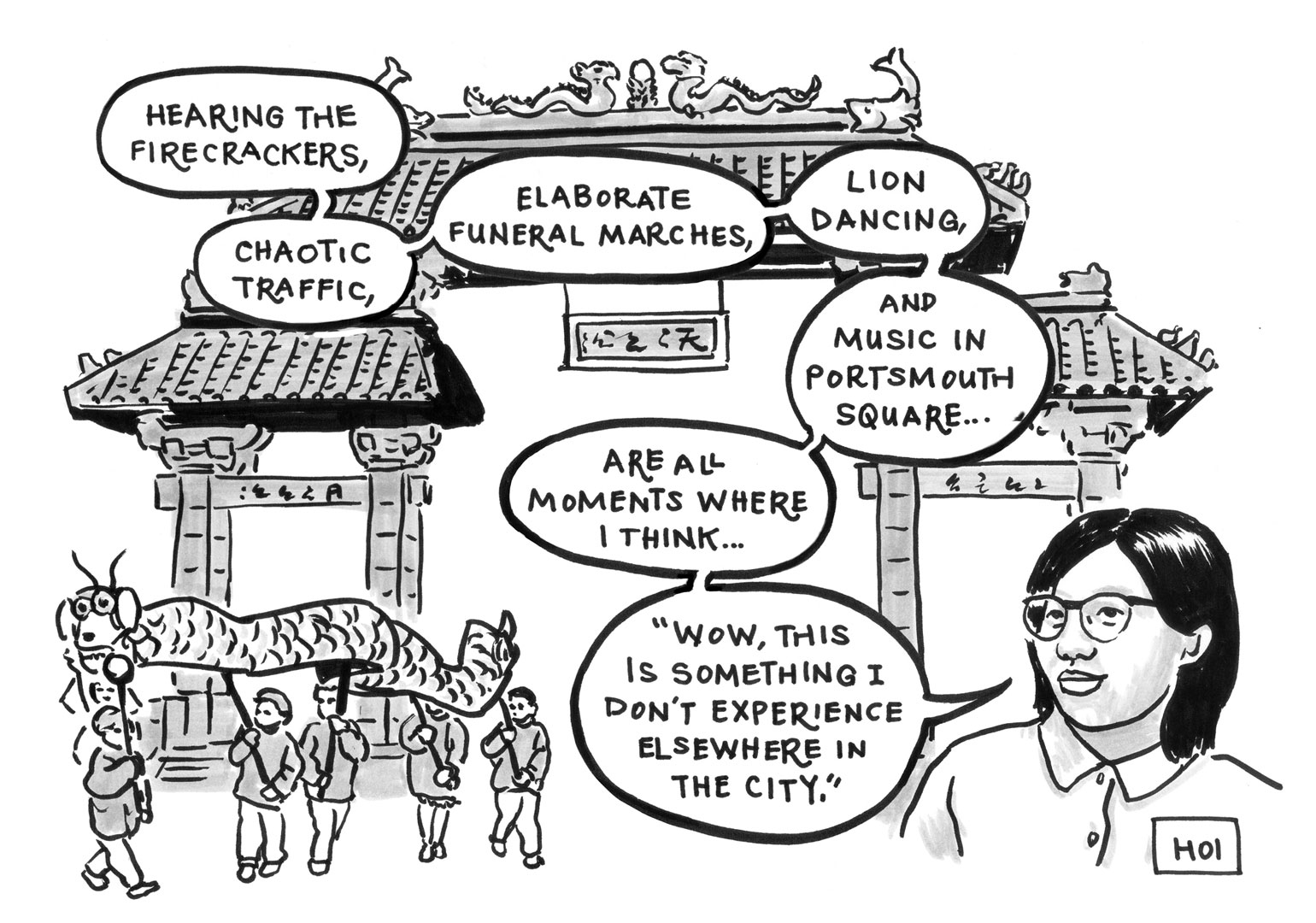
Contributors’ Perspectives on Belonging
What does it feel like to belong?
Empowering.
—Sheng
Like I can be my most authentic self. —Hoi
Having a sense of belonging is like having the feeling of home. When you are in a place or with a group, you can feel safe and harmonious, you share a similar sense of values, feel recognized, and be a part of it. 擁有歸屬感就是能感受到家的感覺。當你身處一個地方或一個群體中,能感受到安全和諧,認可共同的理念,自我價值被肯定,能成為其中一份子。—Alina
What does it feel like to not belong?
To need to prove yourself. —Annie Yee
Awkward and uncomfortable at best. Unsafe at worst. —Mimi*
When there are no common references or ways of being, or when people are not outrightly friendly or welcoming, you become self-conscious and self-doubting. —Celia*
Foreign and helpless. Excluded. The more you internalize that feeling, you think it’s your fault to not feel belong. —Sunflower
Rejection and alienation. There are also conflicts and struggles between being acknowledged and remaining an individual with personal ideals, vision, etc. —Carlos Zialcita
Do you think it is important to have a sense of belonging? Why or why not?
Belonging is what engages our humanity. It is one of our deepest values as individuals and as a community. —Carlos Zialcita
A feeling of belonging is an essential part of life. It is like the air we breathe. —Ernesto
Everyone deserves a place where they feel they belong and feel safe. —Sheng
It contributes to my sense of self, meaning that I feel free to explore, to interact, and to break rules! —Hoi
A sense of belonging is probably more like a spectrum or rings of water ripples. It’s important but it's also important to know you’ll be able to find belonging from many different groups in different places in various forms. —Bijun
Do you feel a sense of belonging in Chinatown?

If no, why not?
The culture and food are adapted in American context.
I can’t speak the language and I don’t know people in the Chinatown community even though I work in Chinatown.
I’m very new to the area. I have no history with Chinatown.
If yes, how did you get that feeling of belonging?

Many contributors’ sense of belonging is relational—it comes from a connection with other people. Contributors also strongly identified places, or to the sense of tradition or history, as sources of their belonging. Additional contributors wrote in other sources:
memories
fluency in Cantonese
“Carry with you” indicates a feeling you carry with you wherever you go.
How does your source of belonging (a person/group, place, etc.) contribute to your sense of belonging?
How ‘Rootedness’ in a Neighborhood Translates into Love for S.F.
I grew up in Hong Kong. At first, in high school, I didn't feel a great sense of familiarity with Chinatown. But as I grew up, I began to see its uniqueness—how cutting-edge and resilient it is. That's something I really want to support. For example, hearing the firecrackers, chaotic traffic, elaborate funeral marches, lion dancing, music in Portsmouth Square are all moments where I think, “Wow, this is something I don't experience elsewhere in the city.” Because of this, I feel close to Chinatown because it reminds me of my love for San Francisco. Perhaps knowing that I have a “home” in Chinatown is a sense I carry around San Francisco (in spite of all the damaging changes). —Hoi
Place, Culture, and Identity are Inextricable
I don’t know how to express the sense of belonging I feel in Chinatown. It's the place where I grew up, where my ancestors had their roots in. It’s the place that accepts who I am. I don’t have to feel the need to explain to someone why salty fish is smelling salty. —Sunflower
Exposure and Learning Lead to Familiarity
Even though I am not Chinese, I can feel a sense of belonging by working and learning about Chinese culture. Also, I physically commute to Chinatown everyday. Getting used to seeing Chinese letters, people, food, and even scents make me feel belonging. —Sunmin
Decades of Family Memories Make Chinatown/Manilatown Special
I immigrated to the USA from the Philippines at age 10 in 1958. I lived in Bernal Heights and often visited Chinatown/Manilatown, especially a restaurant owned by a family friend. Later, my family lived on Kearny Street above Broadway, on the “steps.” [The incline is so steep that the sidewalk is stepped like a staircase.] My daughters went to Jean Parker School on Broadway. I am proud of the history of Chinese and Filipinos in this part of SF. I carry that with me in my many walks through Chinatown: the alleys, the murals, gates, barbershops. When they were little, I would take my daughters to Portsmouth Square, Willie “Woo Woo” Wong Playground, ride the mechanical horse in front of Grant Ave shops. I’d shop for food, and get ice cream for them. Chinatown/Manilatown is a part of SF that is very special to me. —Carlos Zialcita
